| Vintage Pulp | Jan 15 2013 |

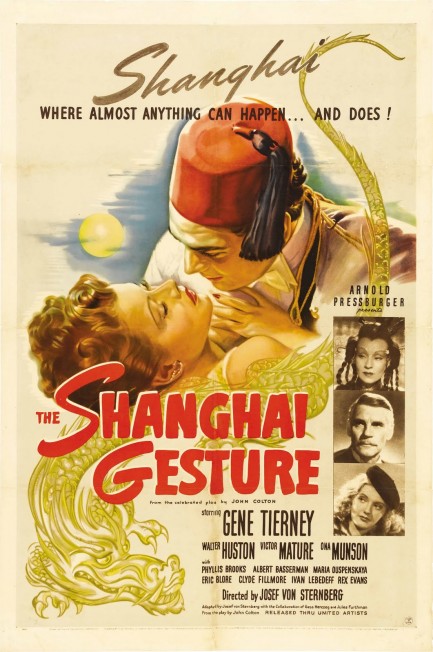
The Shanghai Gesture is a movie we were excited to see. It’s a Josef von Sternberg directed vehicle adapted from a John Colton play (though neutered due to Hays Code worries), with Gene Tierney starring alongside Victor Mature, Walter Huston, Ona Munson, and Phyllis Brooks. Von Sternberg makes almost fetishistic use of his main asset—the luscious Tierney—by showing her in such extreme close-up you’d almost think it’s her breath fogging the lens, rather than one of the diffusion filters mid-century filmmakers utilized to shoot their female stars. A few minutes after she appears, as she observes the decadent tableau inside a Shanghai casino, she pulls out this line: “The place smells evil, like a place where anything can happen.” We’d suggest that if a place smells evil, something already happened. Blame the nearest person. Or the dog. Anyway, when Tierney makes her observation we understand pretty quickly that it’s going to be about her, a flower of Western purity, and her headlong descent into Oriental flooziedom.
All well and good, but the filmmakers fall prey to the type of easy characterizations that the best movies of the period were learning to avoid. When you observe, for example, the mostly respectful depiction of a character like Sam in 1942’s Casablanca, it becomes difficult not to cringe at such excesses here as Ona Munson's Chinese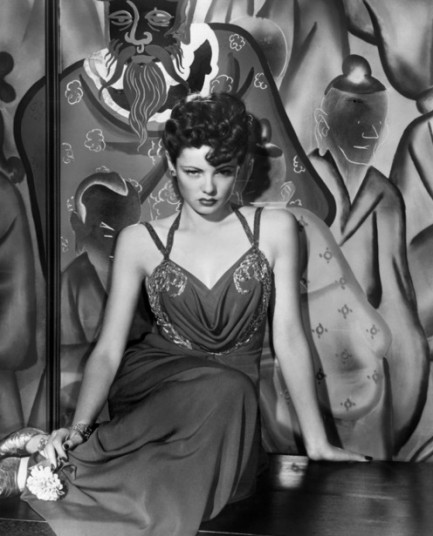
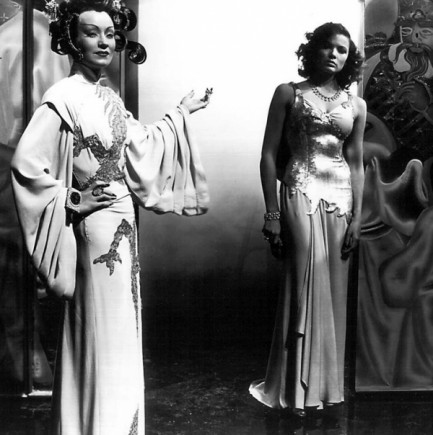 character Mother Gin Sling entering rooms to the sound of a gong, or Walter Huston’s Sir Guy Charteris—a supposed old hand in Asia—querying Mike Mazurky with, “You speakee Chinee? Cantonee? You breakee window?” Did Westerners in China back then really say things like that? We’re dying to know. Mazurky gets the last line in the film, tossing off a smug echo of one of Huston’s earlier questions, and at that moment he’s a sort of stand-in for all Shanghai, which by now we know is a place where white people meet their ruin, but still—“You speakee Chinee?” The unintentional humor of such moments undermines the believability of the entire enterprise. Then there's Munson's insta-Asian makeover. It was standard practice back then, and you know that already before going into any Asian themed movie, but it still looks bad today.
character Mother Gin Sling entering rooms to the sound of a gong, or Walter Huston’s Sir Guy Charteris—a supposed old hand in Asia—querying Mike Mazurky with, “You speakee Chinee? Cantonee? You breakee window?” Did Westerners in China back then really say things like that? We’re dying to know. Mazurky gets the last line in the film, tossing off a smug echo of one of Huston’s earlier questions, and at that moment he’s a sort of stand-in for all Shanghai, which by now we know is a place where white people meet their ruin, but still—“You speakee Chinee?” The unintentional humor of such moments undermines the believability of the entire enterprise. Then there's Munson's insta-Asian makeover. It was standard practice back then, and you know that already before going into any Asian themed movie, but it still looks bad today.
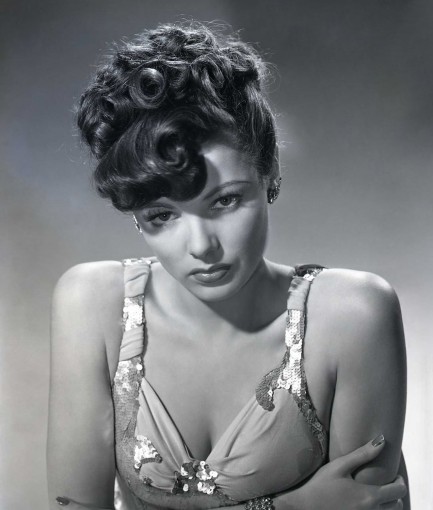
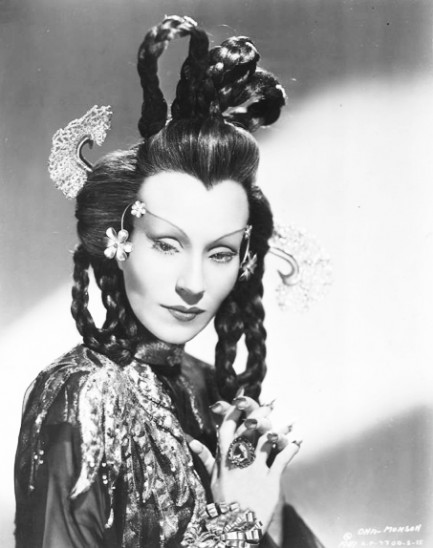 think this movie is better than it really is, we suspect). Some of the interiors are excellent, especially Mother Gin Sling’s baroque circular casino. A couple of the set pieces are striking, such as when young women are hoisted in baskets above a crowd of men clambering to buy them for their flower boats—i.e., floating brothels. And Huston is solid in his portrayal of Charteris. But all in all, The Shanghai Gesture is strictly so-so.
think this movie is better than it really is, we suspect). Some of the interiors are excellent, especially Mother Gin Sling’s baroque circular casino. A couple of the set pieces are striking, such as when young women are hoisted in baskets above a crowd of men clambering to buy them for their flower boats—i.e., floating brothels. And Huston is solid in his portrayal of Charteris. But all in all, The Shanghai Gesture is strictly so-so.Incidentally, the movie is widely labeled a film noir, but it really isn’t. It can be difficult to say definitively whether a film fits into a certain category because “genre” is a nebulous concept to begin with, but we submit that this one is well off the mark, no more a noir than is The Lost Weekend, or for that matter Casablanca. If we’d known in advance it was a run-of-the-mill melodrama—yes, an exotic one, but also clunky and unengaging—we would not have mistakenly expected the cutting cynicism and visual wit that characterize so many film noirs. If you go into it expecting something more along the lines of a B-picture, then The Shanghai Gesture might entertain. But whatever you expect, don’t think
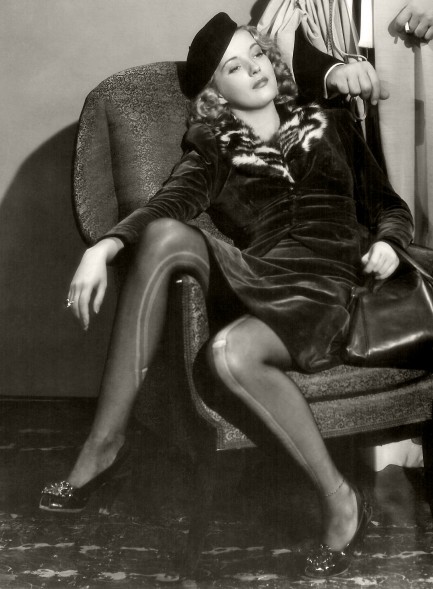
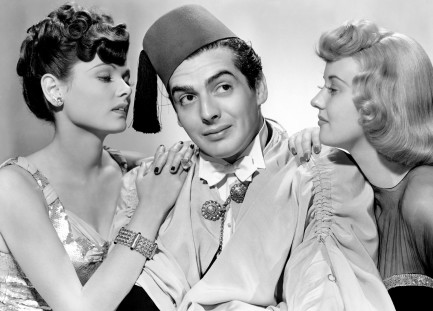 you're going to see von Sternberg or Tierney doing their best work. At top you see the original American promo poster, and below that some production photos. The Shanghai Gesture premiered in New York City on Christmas 1941, and went into national release today in 1942.
you're going to see von Sternberg or Tierney doing their best work. At top you see the original American promo poster, and below that some production photos. The Shanghai Gesture premiered in New York City on Christmas 1941, and went into national release today in 1942.



































































